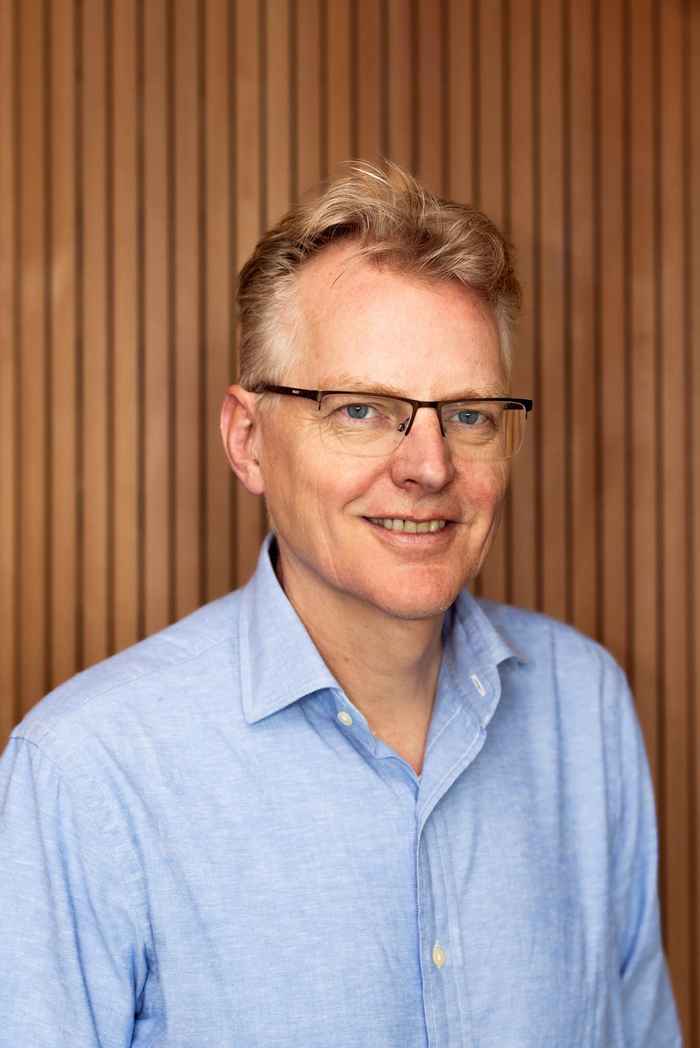Farewell interview with departing Dean, Martin van Hees
19 February 2025
What did you know about AUC before you started as Dean? What was your first impression?
'I knew AUC as a successful and prestigious Liberal Arts and Sciences programme that exemplified all the features of a university college: small-scale classes, a clear international profile and the residential campus. That its reputation was justified, was quickly confirmed by my impressions.'

What did you learn about AUC after being here for a while? Was this different from what you expected?
'I was (and continue to be) impressed by the quality and enthusiasm of the staff and the talented students. The scope of the programme is also something that AUC can really take pride in: students have so many different options and each graduating class shows a wonderful mix of academic trajectories that are all unique and impressive in their own ways.
Something that struck me as a missed opportunity, was AUC's somewhat isolated position – knowing from experience what great opportunities there are in Amsterdam, I thought that AUC could engage more with UvA and VU. But also with external stakeholders: AUC has so much to offer.'
Why is a Liberal Arts and Sciences education important in today's world?
'Besides the focus on the personal development of students, it cannot be emphasised enough: the world needs professionals who are able to look beyond the traditional demarcation between the various disciplines, and who, in doing so, can bring new insights and solutions to the problems of our time. The many transformations that we are dealing with now - political, ecological, technological, social - truly require an LAS perspective.'
How do you reflect on AUC’s role in educational innovation?
'I am proud of the role that AUC plays in this. Consider the contribution that AUC is currently making to university-level reflections on the role of AI in higher education, or the emphasis on the importance for all students of some basic understanding of programming. Another example of the value of a college like ours is in the Community Projects and Internships programme and the wide range of extracurricular activities in which our students engage. Right2Education, for instance, is something that I have always found quite spectacular.'
Do you feel you have contributed all that you had hoped beforehand?
'I am really pleased that we have been able to formulate a long-term strategy for AUC. Many of its elements have been implemented or are being so now. The current debates about higher education at the national level may require further profile choices, but I leave that to my successor. I also think that our efforts to establish collaboration with organisations in the local neighbourhood merit further attention.'
What have been some key moments that you will remember from your time here?
'There are many: the graduation ceremonies, the challenges of the coronavirus lockdowns, lively discussions with the Student Council and Works Council, but also personal interactions or say the joy and enthusiasm around a match of AUC’s soccer team on a rainy evening. And, of course, the protests and blockades of AUC were very impactful.'
What do you take away from the latter experience?
'Like any other institute of higher education, we should re-evaluate the scope of freedom of expression on our campus – the protests clearly indicated that our house rules and social code of conduct are in need of review. While I believe that the accusations and demands that were directed at AUC were misplaced and at odds with the values of a liberal arts education, they do raise important questions about the understanding and justification of those values.'
Why are you stepping down now?
'I have always said that a four-year term for a position such as this is best so I now return to my work at the VU. In general, I believe that an organisation benefits from new perspectives and we have therefore also introduced rotating positions in the AUC Management Team.'
What are you most proud of achieving as Dean?
' As part of AUC’s new strategic vision, the relations with UvA and VU have been strengthened and bottlenecks in the collaboration have been removed. And, perhaps less visible to the wider community but also forming an important part of our strategic agenda, I am quite happy with the steps that we have made towards securing AUC’s financial sustainability.'
What are your hopes and wishes for the future of AUC?
'Internationalisation of higher education is under pressure in the Netherlands. I hope that AUC will continue to serve as an example of the enormous value that an international and selective programme has to offer.'
What will you do after leaving this position?
'The last four years I combined my deanship with research at the VU as well as with membership of the board of the KNAW (Royal Netherlands Academy of Arts and Sciences). My work for the KNAW continues and my research will now take precedence as I will be enjoying a sabbatical. I am first going to Australia to finish a book project on liberalism and freedom with a colleague at ANU. I will subsequently lead the VU research group in the inter-university consortium SOCION that has been awarded a large grant for interdisciplinary research into social cohesion.'